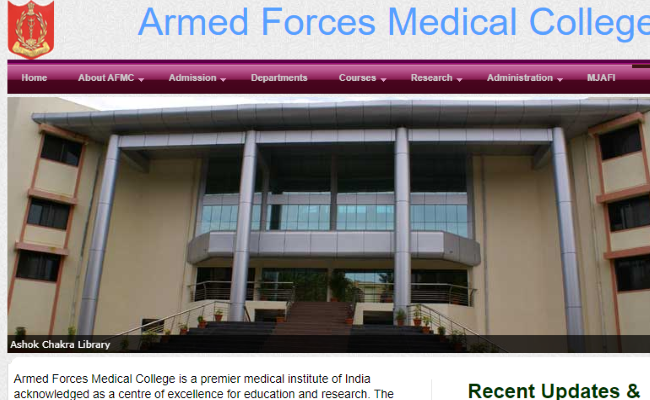
TEM, also known as the Transmission Electron Microscope, is used for the purpose of investigation across various fields which includes crystalline structures and other functions such as the study of the cell in biological studies. It has ever since been a matter of interest for the use in study of science.
It helps study minute structures by highly magnifying them to see even the presence of small internal structures. Its magnification has a potential of up to 1 nanometer and gives out a high-resolution image even at this high magnification. This TEM was first developed by Ernst Ruska. With an easy operation, it has been one of the preferred microscopes to study various techniques available in the field of sciences.
Having ranked as one of the first colleges to obtain the TEM, AFMC had their first instrument in 1967. It was kept at the Department of Pathology. AFMC is managed by the Indian Armed Forces. Provision of Transmission Electron Microscope was recently made at Armed Forces Medical College. This TEM was established by Lieutenant General Bipin Puri, who is the Director-General of Armed Forces Medical Services (DGAFMS) and has also served as the senior colonel commandant of Army Medical Corps (AMC).
This new facility has sure proved to be a moment of immense prestige to the college. He also admired the attempt of the college to establish such a great facility at the college which will lead to both advancements in study of various systematic data and in study of a great amount of undiscovered phenomenon in all the aspects of sciences. It will also definitely help in the various research processes conducted by fellow researchers. It hence holds a lot of importance in the field of research study as well.
The various diseases that have not yet found a cure and is under study can also be studied with the help of TEM. These diseases include cancer-related findings among others.
Maximal advantages can be obtained by this establishment in the college, and it holds a great number of opportunities for the colleges, as stated by the director and commandant, Surgeon Vice Admiral Ravi Kalra. The Director General of Armed Forces Medical Services has also established the museum of the college which displays the renowned past of the college. This museum holds a list of various accomplishments by the college.
This museum also displays the victorious South Asian games gold medal of athlete, Lieutenant General Yogendra Singh and the Arjuna Award acquired by Otilia Mascarenhas, who used to be the captain of National Women’s Hockey team during the 70s, among other triumphant people. These both were the alumni of this college as well.
This has proved to be another milestone in the history of AFMC.
